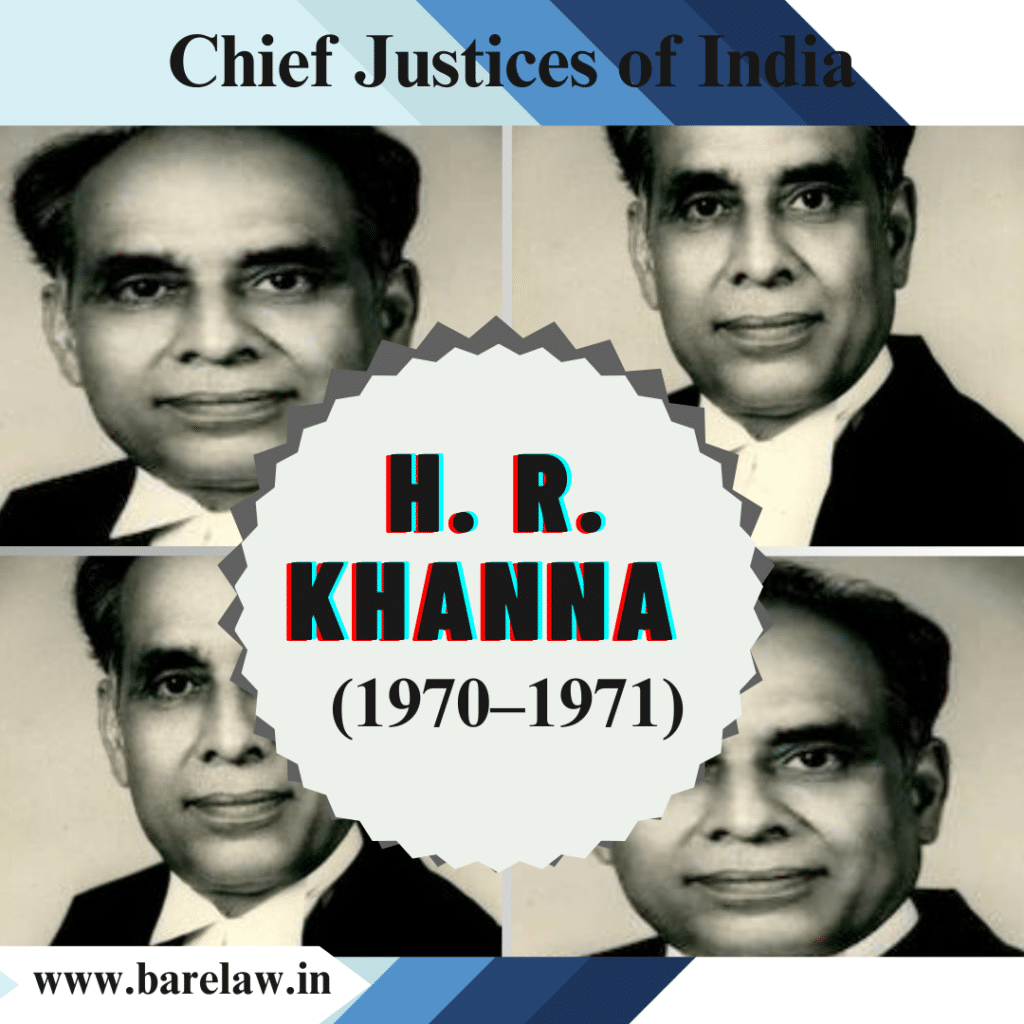
Table of Contents
The Legacy of Chief Justice H.R. Khanna: A Beacon of Judicial Integrity
The Legacy of Chief Justice H.R. Khanna: A Beacon of Judicial Integrity
The Legacy of Chief Justice H.R. Khanna: A Beacon of Judicial Integrity
The role of a Chief Justice in any country’s judiciary is pivotal, as they are responsible for upholding the law, ensuring justice is served, and setting a precedent for future generations. In the history of the Indian judiciary, one name stands out for his unwavering commitment to justice and integrity: Chief Justice H.R. Khanna, who held office from 1970 to 1971. This article delves into the life and legacy of Chief Justice Khanna, shedding light on his remarkable contributions to the Indian legal system.
Early Life and Education
Hans Raj Khanna, popularly known as H.R. Khanna, was born on July 3, 1912, in Amritsar, Punjab. He hailed from a family deeply rooted in legal tradition; his father was a renowned lawyer. Following in his father’s footsteps, Khanna pursued his legal education at Government College, Lahore, and later at King’s College London. His exceptional intellect and dedication earned him a scholarship at King’s College, where he completed his Bar-at-Law.
A Distinguished Legal Career
Khanna’s legal career began in the Lahore High Court, where he practiced as an advocate. He quickly gained recognition for his legal acumen and integrity. In 1952, he was appointed as a judge of the Punjab High Court, and subsequently, in 1962, he was elevated to the position of a judge in the Supreme Court of India.
Throughout his tenure as a judge, Khanna became known for his judicious approach to interpreting the Constitution and upholding the principles of justice. His judgments reflected a deep commitment to protecting fundamental rights and ensuring that the Constitution was upheld in letter and spirit.
The Landmark Case of ADM Jabalpur v. Shiv Kant Shukla
Chief Justice Khanna’s defining moment came during one of the most critical periods in India’s history—the Emergency imposed by Prime Minister Indira Gandhi in 1975. The infamous case of ADM Jabalpur v. Shiv Kant Shukla, also known as the “Habeas Corpus case,” marked a watershed moment for Chief Justice Khanna and the Indian judiciary.
During the Emergency, the government had detained several political activists without trial, suspending their fundamental rights. The Supreme Court was faced with the decision of whether citizens could still approach the court for relief through habeas corpus petitions.
In a bold and courageous move, Chief Justice Khanna, along with Justice P.N. Bhagwati, Justice V.R. Krishna Iyer, and Justice A.N. Ray, delivered a dissenting judgment that remains a cornerstone of Indian legal history. Khanna’s judgment unequivocally declared that even during a state of Emergency, fundamental rights could not be suspended entirely. He famously stated, “Even during the Emergency, life and personal liberty are precious and cannot be lightly interfered with.”
This dissenting judgment by Chief Justice Khanna, which upheld the supremacy of the Constitution and the inviolability of fundamental rights, has been hailed as a beacon of judicial integrity. It demonstrated his unwavering commitment to justice and the rule of law, even in the face of immense political pressure.
Consequences of the Dissent
While Chief Justice Khanna’s dissenting judgment in the ADM Jabalpur case earned him immense respect and admiration from legal scholars and human rights activists, it also had personal and professional repercussions. His principled stance led to his supersession for the position of Chief Justice of India when his junior, Justice A.N. Ray, was appointed as the Chief Justice.
The supersession of Chief Justice Khanna remains a contentious and debated issue in Indian legal and political history. It is widely believed that his refusal to compromise on matters of constitutional principles and justice led to his non-selection for the highest judicial office in the country.
Legacy and Impact
Chief Justice H.R. Khanna’s legacy endures through his judgments and his steadfast commitment to justice. His courage in upholding the Constitution’s values and the rule of law during a period of political turmoil has left an indelible mark on the Indian judiciary.
His principled stand in the ADM Jabalpur case has been cited in numerous subsequent judgments and continues to inspire judges, lawyers, and activists to stand up for justice and the protection of fundamental rights. The legacy of Chief Justice Khanna serves as a reminder that the judiciary’s independence and integrity are paramount in a democracy.
Conclusion
In the annals of Indian legal history, Chief Justice H.R. Khanna remains a symbol of unwavering commitment to justice and integrity. His principled dissent in the ADM Jabalpur case during the Emergency showcased his dedication to upholding the Constitution and protecting fundamental rights, even in the face of adversity.
Chief Justice Khanna’s legacy continues to inspire generations of legal professionals and serves as a reminder of the judiciary’s pivotal role in safeguarding democracy and the rule of law. His life and career stand as a testament to the enduring power of judicial integrity and the pursuit of justice, regardless of the challenges faced. Chief Justice H.R. Khanna will forever be remembered as a beacon of hope for those who believe in the sanctity of the law and the protection of individual rights.





